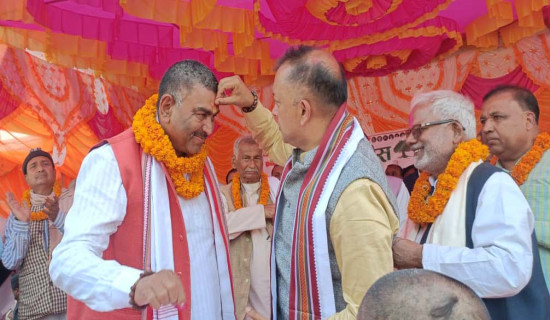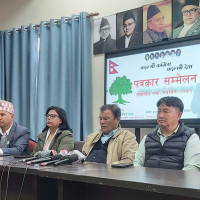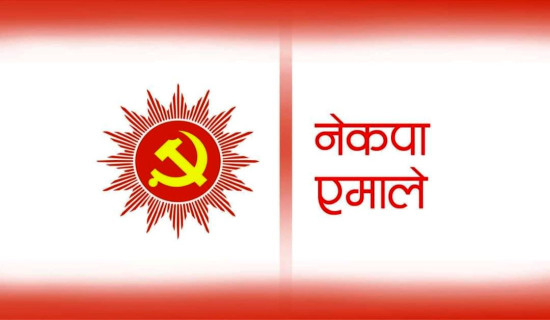- Sunday, 15 February 2026
COP30: Mixed Results
The 30th United Nations Climate Change Conference, often referred to as COP30, held in Belem, Brazil, concluded on Saturday with a mixed bag of outcomes. For the developing nations like Nepal, which are bearing the brunt of climate change, the conference was not very result-oriented. However, all is not doom and gloom. Over one trillion dollars have been set aside for clean grids through the Action Agenda. The conference has pledged to protect or restore hundreds of millions of hectares of forest, land and oceans while over 400 million people are becoming more resilient. Altogether 194 countries stood firm in solidarity of climate cooperation, and expressed that “the Paris Agreement is working."
The summit, organised in the Amazon forest, brought together nearly 50,000 people from over 190 countries, calling for an end to the severity of the climate crisis. Over 80 countries had pushed for a clear plan to move away from fossil fuels, but this was not included in the final agreement. Many developing countries also expected stronger commitments on climate finance, but those expectations were not met. No deal was made on phasing out fossil fuels. This comes at a time when global temperatures have already exceeded 1.5 degrees Celsius over the last two years. This has worried the mountainous countries like Nepal, where melting glaciers, unpredictable rainfall and more extreme weather are directly linked to global fossil fuel burning. Nearly 90 countries -- including Brazil and Colombia -- supported a stronger decision, but major oil-producing nations blocked it.
A small delegation, led by the Minister for Agriculture and Livestock Development Dr. Madan Prasad Pariyar, represented Nepal at COP30. The Nepali side highlighted the country's high vulnerability to climate change, demanded climate justice, increased climate finance and the need to operationalise the Loss and Damage Fund. Nepal also worked to promote the Himalayan agenda and the protection of mountain ecosystems. Nepal, which has already submitted its Nationally Determined Contributions (NDCs) along with more than 60 other countries, remains committed to phasing out greenhouse gas emissions and has set a target of achieving net-zero by 2045. However, commitments from smaller nations alone are not enough to reduce global emissions. Major oil-producing countries remained silent, weakening the overall efforts to reduce the impact of climate change.
Nepal is currently updating its climate strategies and scaling up adaptation work in mountain and river-basin regions. Timely release of climate funds would provide the country with essential technical support and capacity-building. Although Nepal has consistently participated in global climate summits, its presence has often carried more influence than the actual outcomes achieved.
Nepal, alongside Bhutan and Kyrgyzstan, pushed for an annual global dialogue on mountains -- an important step in elevating the Himalayan agenda. The COP presidency issued the ‘Global Muchirao’ document, which expresses a shared global goal but also exposed the deep divide between rich and poor countries. For climate-vulnerable nations like ours, the decision to triple adaptation finance to US$120 billion by 2035 gives some hope. In his closing speech, UN Climate Change Executive Secretary Simon Stiell struck a positive note and said the COP30 showed that climate cooperation is alive and kicking, keeping humanity in the fight for a livable planet, with a firm resolve to keep 1.5 °C within reach.
















